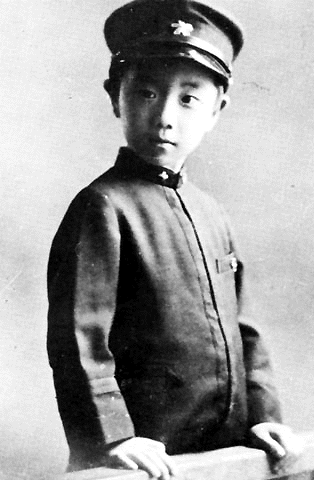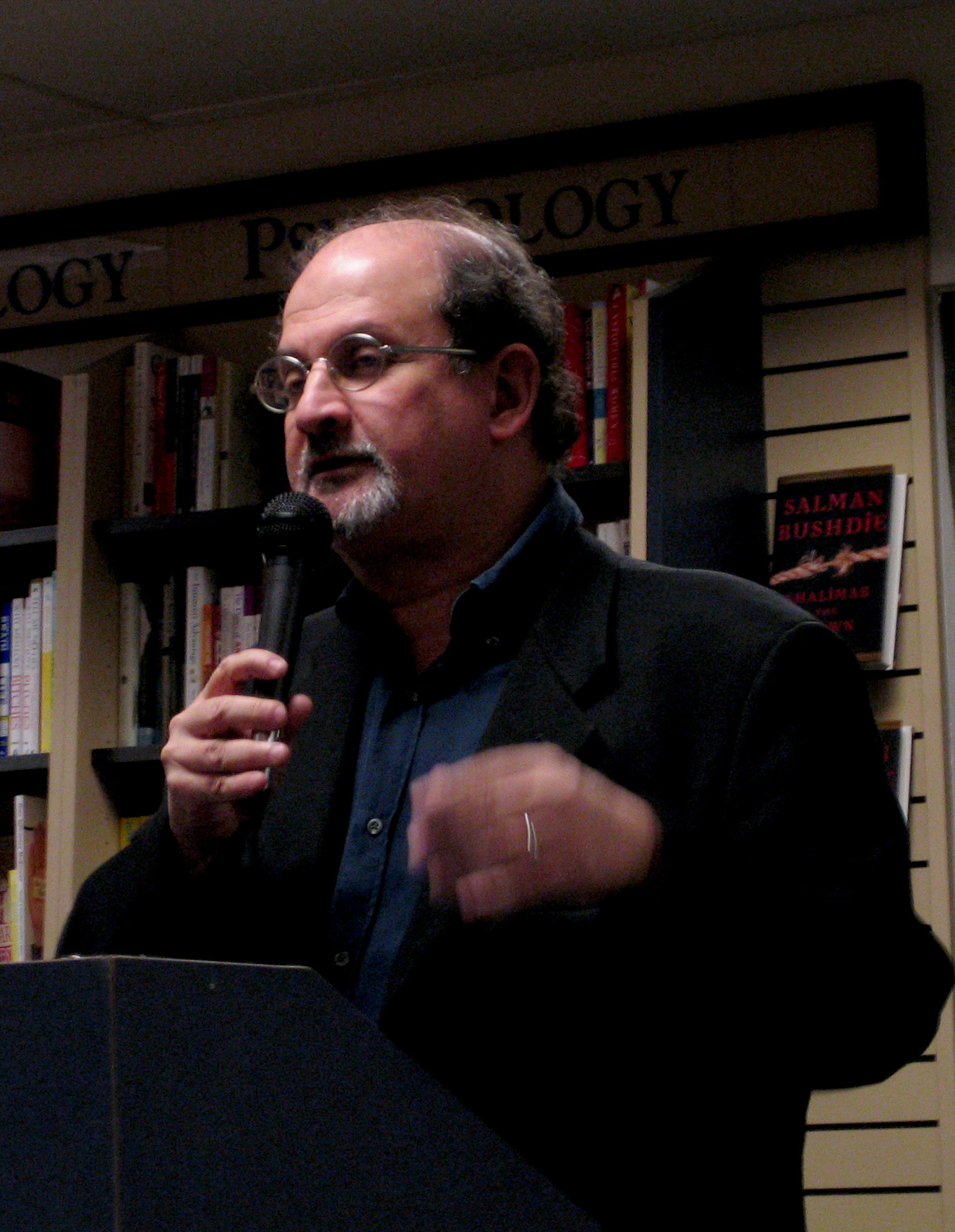|
Lady Aoi
is a fictional character in '' The Tale of Genji'' (''Genji Monogatari''). Daughter of the Minister of the Left (Tō no Chūjō's sister) and Genji's first principal wife, she marries Genji when she is sixteen and he is only twelve. Proud and distant from her husband, Aoi is constantly aware of the age difference between them and very much hurt by Genji's philandering. For a short while, after giving birth to Genji's son, Yūgiri, and suffering episodes of spirit possession, Aoi becomes appealing in Genji's eyes. The episode of spirit possession itself ('' mono no ke'') is extremely controversial and brings forward two female characters of the tale: Aoi (Genji's wife) and Lady Rokujō (Genji's mistress). The relationship between the two women may be that between victim and aggressor, if one follows the traditional interpretation of spirit possession, or that between accomplices expressing their discontent with the Heian system of polygynous marriage (and with Genji, obviously). Aoi ... [...More Info...] [...Related Items...] OR: [Wikipedia] [Google] [Baidu] |
Fictional Character
In fiction, a character (or speaker, in poetry) is a person or other being in a narrative (such as a novel, play, radio or television series, music, film, or video game). The character may be entirely fictional or based on a real-life person, in which case the distinction of a "fictional" versus "real" character may be made. Derived from the Ancient Greek word , the English word dates from the Restoration, although it became widely used after its appearance in '' Tom Jones'' by Henry Fielding in 1749. From this, the sense of "a part played by an actor" developed.Harrison (1998, 51-2) quotation: (Before this development, the term ''dramatis personae'', naturalized in English from Latin and meaning "masks of the drama," encapsulated the notion of characters from the literal aspect of masks.) Character, particularly when enacted by an actor in the theatre or cinema, involves "the illusion of being a human person". In literature, characters guide readers through their stories, hel ... [...More Info...] [...Related Items...] OR: [Wikipedia] [Google] [Baidu] |
Mononoke
''Mononoke'' (物の怪) are vengeful spirits (onryō), dead spirits (shiryō), live spirits (ikiryō), or spirits in Japanese classical literature and folk religion that were said to do things like possess individuals and make them suffer, cause disease, or even cause death. It is also a word sometimes used to refer to ''yōkai'' or ''henge'' ("changed beings"). Summary ''Mononoke'' can be often seen in literature of the Heian period. As a famous example, in the 9th volume of the '' Genji Monogatari'', "Aoi" is the ikiryō of Lady Rokujo, who possessed Aoi no Ue. Other than that, there are also statements about ''mononoke'' in publications like ''Ōkagami'' and ''Masukagami''. In those times, when medical knowledge has not been fully developed, people like monks and shugensha would perform incantations and prayers against diseases caused by ''mononoke'', and by temporarily moving the ''mononoke'' into a different person called the " yorimashi" (usually servants, apprentices, ... [...More Info...] [...Related Items...] OR: [Wikipedia] [Google] [Baidu] |
Lady Rokujō
is a fictional character in '' The Tale of Genji'' (''Genji Monogatari''). She is a mistress of the novel's protagonist, Hikaru Genji, with whom she becomes infatuated with and jealous of his other lovers. Her jealousy subconsciously causes her ''ikiryō'' (wandering spirit) to become a Shiryo (also known as a ''Yūrei'') that attacks and murders multiple other mistresses and wives of Genji. Lady Rokujō is a relatively minor character in the novel. She appears in chapters Kiritsubo, Hana no En, Sakaki, Miotsukushi and Wakana. Outside of these chapters, Lady Rokujō has little mention or influence on the novel. Lady Rokujō is also the protagonist of two Nōh dramas. In ''Nonomiya'' ("The Shrine in the Fields")'','' Lady Rokujō pretends to be a village woman who tells a traveling monk of Lady Rokujō’s story. In ''Aoi no Ue'' ("Lady Aoi"), Lady Rokujō possesses Genji's wife, Lady Aoi, out of jealousy, causing Lady Aoi to fall ill. ''Aoi no Ue'' was later adapted into a mode ... [...More Info...] [...Related Items...] OR: [Wikipedia] [Google] [Baidu] |
Aoi No Ue (play)
''Aoi no Ue'' (葵上, Lady Aoi) is a Muromachi period Japanese Noh play based on the character Lady Aoi from the Heian period novel '' The Tale of Genji''. It is an example of the fourth category of "miscellaneous" Noh plays. ''Aoi no Ue'' was the first of many Noh plays based on ''The Tale of Genji''. It is sometimes attributed to Zeami Motokiyo or to his son-in-law Zenchiku; the extant version of the text is likely a reworking of a version written for the troupe of a contemporary, Inuō. Play In the backstory, Prince Genji, who was married to his wife Lady Aoi at a young age, has taken a mistress, Lady Rokujo. Lady Rokujo had been married to the crown prince, but his death had left a much less powerful widow. Rokujo had previously destroyed another mistress of Genji through a jealous apparition. Following an episode in which she is humiliated in public by Lady Aoi, Rokujo is enraged to discover that Aoi is pregnant. Genji begins ignoring Rokujo, and in her jealousy her livin ... [...More Info...] [...Related Items...] OR: [Wikipedia] [Google] [Baidu] |
Yukio Mishima
, born , was a Japanese author, poet, playwright, actor, model, Shintoist, Nationalism, nationalist, and founder of the , an unarmed civilian militia. Mishima is considered one of the most important Japanese authors of the 20th century. He was considered for the Nobel Prize in Literature in 1968, but the award went to his countryman and benefactor Yasunari Kawabata. His works include the novels and , and the autobiographical essay . Mishima's work is characterized by "its luxurious vocabulary and decadent metaphors, its fusion of Japanese literature, traditional Japanese and modern Western literature, Western literary styles, and its obsessive assertions of the unity of beauty, eroticism and death", according to author Andrew Rankin. Mishima's political activities made him a controversial figure, which he remains in modern Japan. From his mid-30s, Mishima's Right-wing politics, right-wing ideology was increasingly revealed. He was proud of the traditional culture and spirit of ... [...More Info...] [...Related Items...] OR: [Wikipedia] [Google] [Baidu] |
The Lady Aoi
''The Lady Aoi'' is a play written by Yukio Mishima in 1954 which appears in his ''Five Modern Noh Plays''. It modernizes the noh drama ''Aoi no Ue''. English Version Donald Keene has translated this play into English. Notable productions Bahram Beyzai produced this play in Persian in Tehran Tehran (; fa, تهران ) is the largest city in Tehran Province and the capital of Iran. With a population of around 9 million in the city and around 16 million in the larger metropolitan area of Greater Tehran, Tehran is the most popul ... in 1998. References Plays by Yukio Mishima 1954 plays {{1950s-play-stub ... [...More Info...] [...Related Items...] OR: [Wikipedia] [Google] [Baidu] |
Joji Yuasa
is a Japanese composer of contemporary classical music.Luciana Galliano, ''The Music of Joji Yuasa'' ed. Peter Burt. Cambridge Scholars Publishing, 2012. Early life and education Joji Yuasa was born in Kōriyama, Fukushima, Kōriyama, Fukushima Prefecture, Fukushima and is a self-taught composer. He first became interested in music while a pre medical student at Keio University, and in 1952 he joined a young artists’ grouJikken Kobo(Experimental Workshop, 1951 - 1957) in Tokyo, an organization for the exploration of new directions in the arts, including multimedia. Career From 1981 to 1994 he was a music researcher and professor at the University of California, San Diego, where he is currently a professor emeritus. He has also served as a guest professor at the Tokyo College of Music since 1981, a professor at Nihon University since 1993 and an honorary member of ISCM. Yuasa is the recipient of a 1996 Suntory Music Award. Yuasa has written a wide range of compositions, i ... [...More Info...] [...Related Items...] OR: [Wikipedia] [Google] [Baidu] |
Toshiro Mayuzumi
Toshiro Mayuzumi (黛 敏郎 ''Mayuzumi Toshirō'' ; 20 February 1929 – 10 April 1997) was a Japanese composer known for his implementation of Avant-garde music, avant-garde instrumentation alongside traditional Japanese musical techniques. His works drew inspiration from a variety of sources ranging from jazz to Music of Bali, Balinese music, and he was considered a pioneer in the realm of musique concrète and electronic music, being the first artist in his country to explore these techniques. In the span of his career, his works included Symphony, symphonies, ballets, operas, and film scores, and was the recipient of an Otaka prize by the NHK Symphony Orchestra and the Medals of Honor (Japan), Purple Medal of Merit. Biography Born in Yokohama, Mayuzumi was a student of Tomojirō Ikenouchi and Akira Ifukube at the Tokyo National University of Fine Arts and Music immediately following the Second World War, graduating in 1951. He then went to Europe where he attended the P ... [...More Info...] [...Related Items...] OR: [Wikipedia] [Google] [Baidu] |
Salman Rushdie
Sir Ahmed Salman Rushdie (; born 19 June 1947) is an Indian-born British-American novelist. His work often combines magic realism with historical fiction and primarily deals with connections, disruptions, and migrations between Eastern and Western civilizations, typically set on the Indian subcontinent. Rushdie's second novel, ''Midnight's Children'' (1981), won the Booker Prize in 1981 and was deemed to be "the best novel of all winners" on two occasions, marking the 25th and the 40th anniversary of the prize. After his fourth novel, ''The Satanic Verses'' (1988), Rushdie became the subject of several assassination attempts and death threats, including a '' fatwa'' calling for his death issued by Ruhollah Khomeini, the supreme leader of Iran. Numerous killings and bombings have been carried out by extremists who cite the book as motivation, sparking a debate about censorship and religiously motivated violence. On 12 August 2022, a man stabbed Rushdie after rushing onto the ... [...More Info...] [...Related Items...] OR: [Wikipedia] [Google] [Baidu] |
The Moor's Last Sigh
''The Moor's Last Sigh'' is the fifth novel by Salman Rushdie, published in 1995. It is set in the Indian cities of Bombay and Cochin. Title and influences The title is taken from the story of Muhammad XII of Granada, Boabdil, the last Moors, Moorish king of Emirate of Granada, Granada, who is also mentioned frequently in the book. The spot from which Boabdil last looked upon Granada after surrendering is known as Puerto del Suspiro del Moro ("Pass of the Moor's Sigh"). The mother of the narrator and an artist friend of the mother's each make a painting which they call "The Moor's Last Sigh". The book draws on a variety of real historical figures and events, including Boabdil's Treaty of Granada (1491), surrender of Granada, the demolition of the Babri Masjid, the 1993 Bombay bombings, the gangster and terrorist Dawood Ibrahim, as well as modern Indian political organizations like Bal Thackeray and the Shiv Sena. Plot details ''The Moor's Last Sigh'' traces four generations ... [...More Info...] [...Related Items...] OR: [Wikipedia] [Google] [Baidu] |



